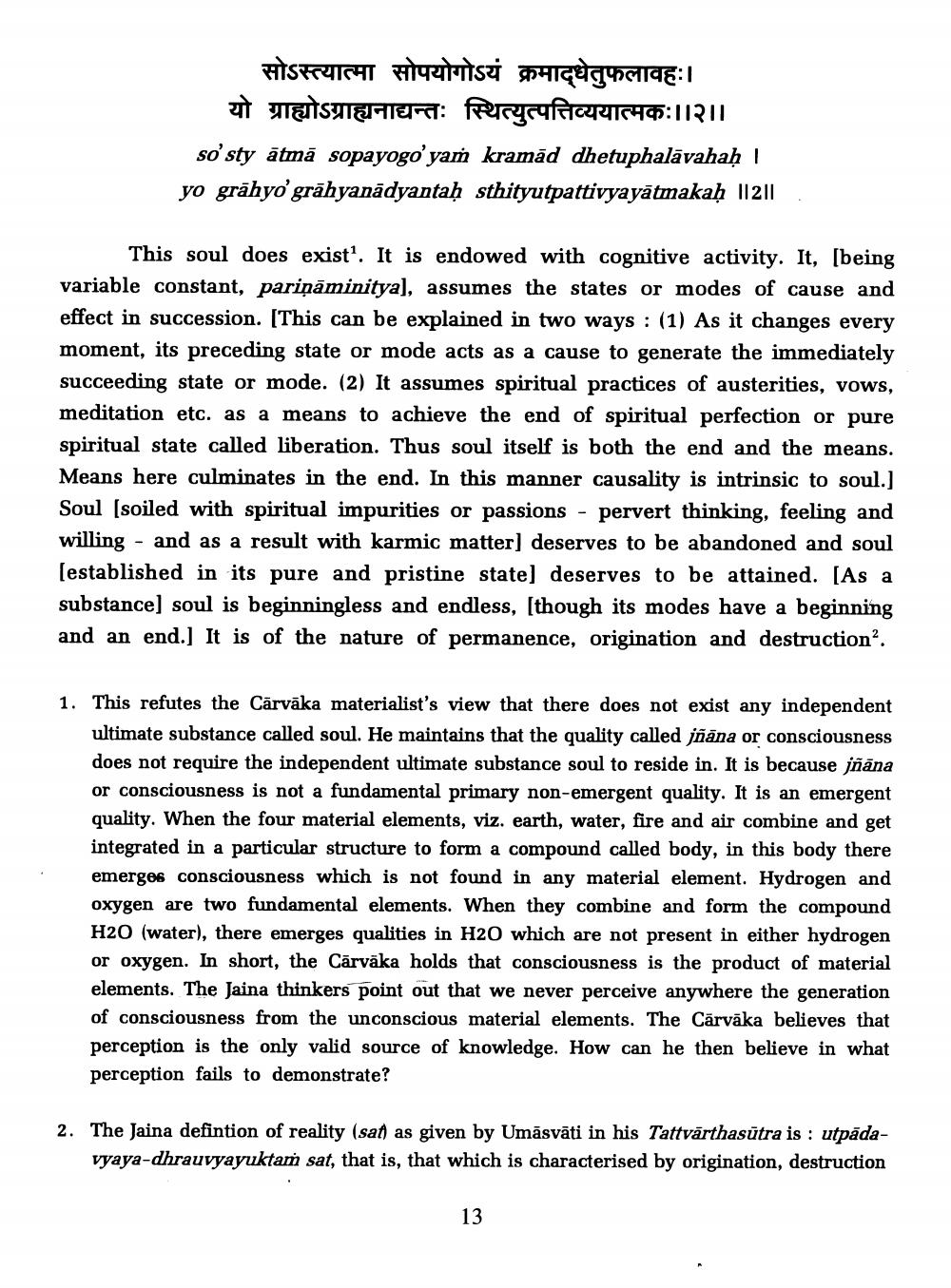________________
सोऽस्त्यात्मा सोपयोगोऽयं क्रमाद्धेतुफलावहः। यो ग्राह्योऽग्राह्यनाद्यन्तः स्थित्युत्पत्तिव्ययात्मकः।।२।। so'sty ātmā sopayogo'yam kramād dhetuphalāvahaḥ | yo grāhyo'grāhyanādyantaḥ sthityutpattivyayātmakaḥ ||2||
This soul does exist'. It is endowed with cognitive activity. It, [being variable constant, pariņāminitya), assumes the states or modes of cause and effect in succession. (This can be explained in two ways : (1) As it changes every moment, its preceding state or mode acts as a cause to generate the immediately succeeding state or mode. (2) It assumes spiritual practices of austerities, vows, meditation etc. as a means to achieve the end of spiritual perfection or pure spiritual state called liberation. Thus soul itself is both the end and the means. Means here culminates in the end. In this manner causality is intrinsic to soul.] Soul (soiled with spiritual impurities or passions - pervert thinking, feeling and willing - and as a result with karmic matter) deserves to be abandoned and soul [established in its pure and pristine state] deserves to be attained. (As a substance) soul is beginningless and endless, (though its modes have a beginning and an end.] It is of the nature of permanence, origination and destruction.
1. This refutes the Cärvāka materialist's view that there does not exist any independent
ultimate substance called soul. He maintains that the quality called jñāna or consciousness does not require the independent ultimate substance soul to reside in. It is because jñāna or consciousness is not a fundamental primary non-emergent quality. It is an emergent quality. When the four material elements, viz. earth, water, fire and air combine and get integrated in a particular structure to form a compound called body, in this body there emerges consciousness which is not found in any material element. Hydrogen and oxygen are two fundamental elements. When they combine and form the compound H20 (water), there emerges qualities in H2O which are not present in either hydrogen or oxygen. In short, the Cārvāka holds that consciousness is the product of material elements. The Jaina thinkers point out that we never perceive anywhere the generation of consciousness from the unconscious material elements. The Cärvāka believes that perception is the only valid source of knowledge. How can he then believe in what perception fails to demonstrate?
2. The Jaina defintion of reality (sat) as given by Umāsvāti in his Tattvārthasūtra is : utpada
vyaya-dhrauvyayukta sat, that is, that which is characterised by origination, destruction
13




